The Greatest Winner of Them All
9 July 2019 | Stories from Amboseli | Tyler Davis
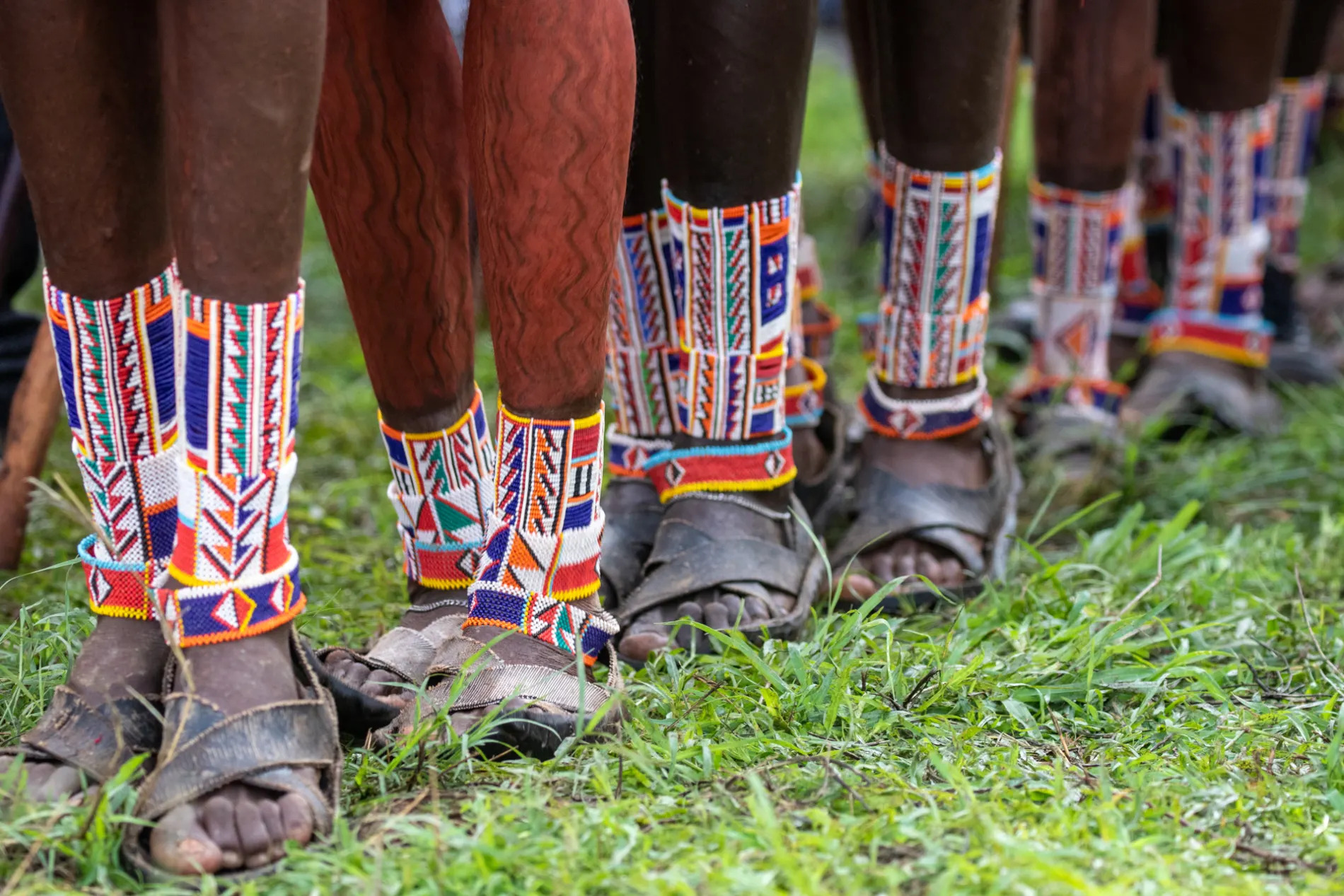
Colourful beads. Brightly checkered shukas. Effortless, spring-like jumping. These are some of the iconic attributes of Maasai morani, or warriors. But one infamous characteristic stands out among the rest, a trait for which the Maasai morani are most revered as both fearsome and fearless: as a rite of passage, they must kill a lion.
Historically, in days not so far gone, there were many more lion and far fewer Maasai, and the conservation implications of killing lion wasn’t such a concern; in fact, this practice probably wouldn’t have made a noticeable dent in the population.
However, in recent years the roles have reversed, and suddenly the Maasai now far outnumber lions, whose habitat has shrunk significantly, and each lion killed can be measured in terms of percentage of the world’s total population. In other words, for a tribe fiercely proud of their history and culture, a venerated tradition is no longer a sustainable option.
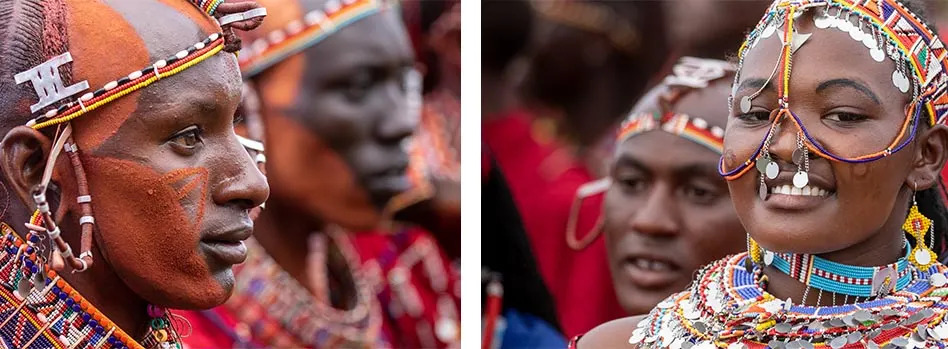
Ten years ago, in a corner of Maasailand near Amboseli and Tsavo National Parks in Kenya, a most miraculous thing happened: a group of concerned menye layiok, or Maasai cultural fathers, approached a local NGO called the Big Life Foundation, and asked for help implementing an alternative to lion-hunting. The idea was simple: replace these traditional but unsustainable hunts with a different but equally admirable way to demonstrate courage and manhood. Thus, the revolutionary concept of the Maasai Olympics was born.
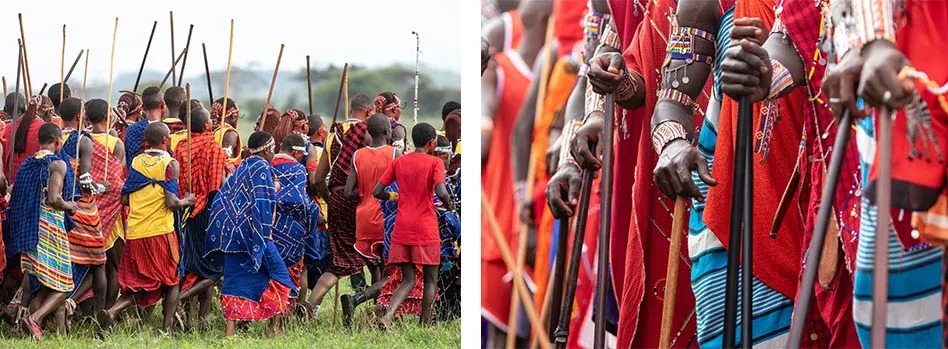
Part fundraiser for conservation and part cultural event, for those participating, the Maasai Olympics is above all else a sporting competition offering bragging rights – just as the killing of a lion once did. Four neighbouring manyattas (camps where warriors of an age-group live communally) compete in the events of javelin, rungu-throwing, running, and jumping – all traditional activities turned contests, showcasing the qualities of a Maasai warrior. And as icing on the cake, the winners also take home monetary rewards – but not if their manyatta has killed a lion during the previous year.
The fourth iteration of this bi-annual event occurred this past December at Kimana Sanctuary, part of the narrow wildlife corridor between Amboseli and Tsavo. I’d long wanted to see this event firsthand, partly of a personal fascination for history and culture, but also with my Angama Foundation hat on to see if something similar could be organised in the Maasai Mara.
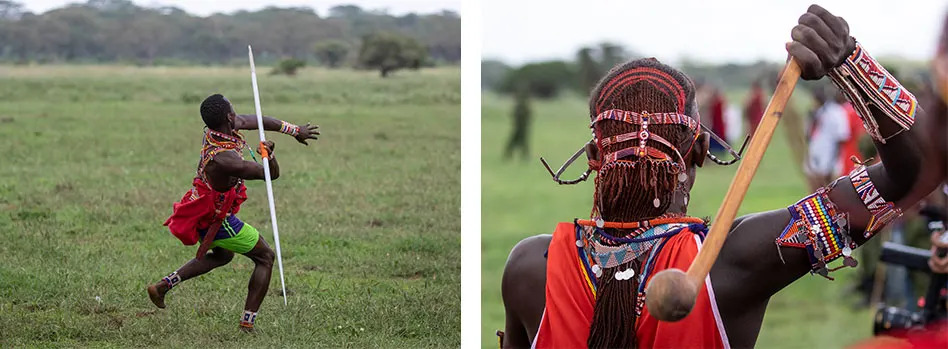
I was not let down: on the day of the finals, the energy upon arriving at the venue was positively palpable. Each team firing themselves up with throngs of supporters in full regalia, dancing, chanting and singing. More than once, a warrior worked themselves into such a fervour that they went down in a fit and had to be restrained by their cohorts. The energy was extreme, brimming with passion and purpose. They’d been waiting two years to show off their competitive prowess, and the time was now.
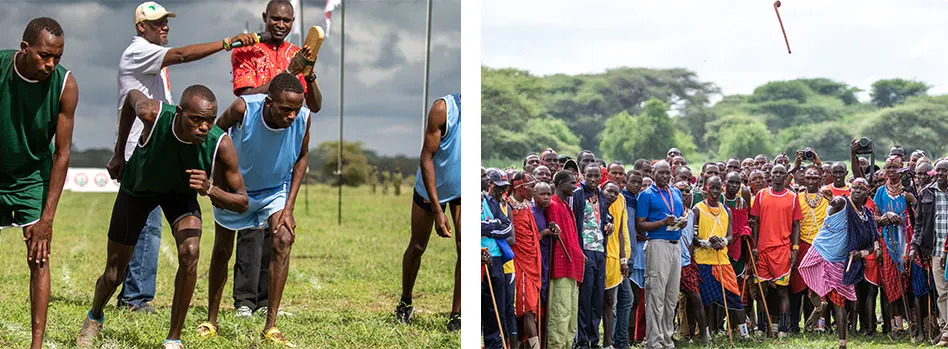
With the arrival of the event’s patron, David Rudisha, Olympic gold medalist in the 800m and the world’s fastest Maasai, the competitors and supporters from all four manyattas came together in one massive welcoming ceremony. The intensely rhythmic jingling of beads, combined with the reverberant chanting, was simultaneously formidable and hypnotic.
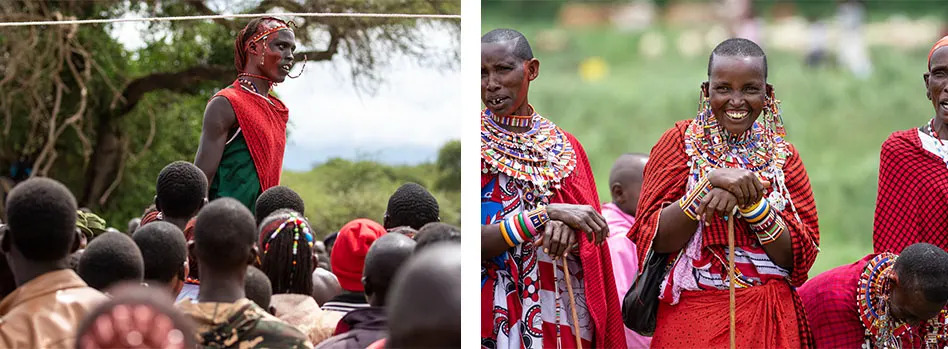
As everyone found their places, Rudisha clapped two wooden blocks together, and the first race was off. The games had begun. For the next several hours, the teams competed fiercely. Feet were a blur around the track, javelins flew 40-plus metres, and rungus clanged off the basket rim to shouts of both consternation and jubilation. The energy never waned, not for a second, as athletes claimed individual titles as well as snagging critical points for their manyatta.
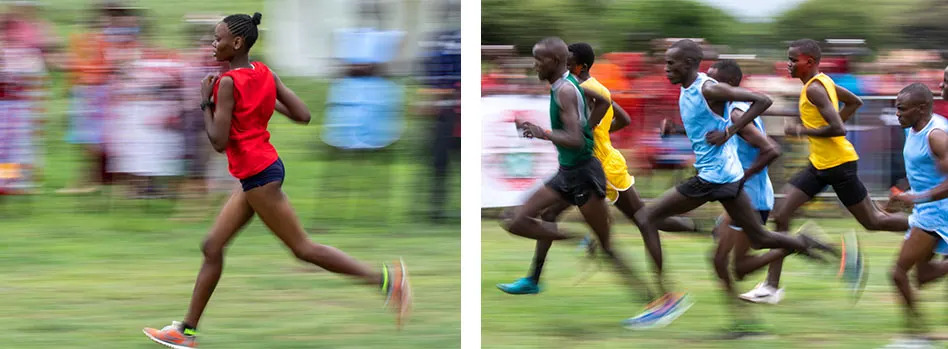
At the end of the day, with two manyattas tied for first place, all eyes turned towards the final event and the highlight of the Olympics: jumping. A rope tied between two height-marked poles gradually gets higher and higher as competitors start from a standing position and touch it with the top of their head – or don’t. After countless rounds, the heads of the last two men standing breached the nine-foot mark, until one came up just shy.
In an instant, the place erupted in a cacophony of shouts and cheers. The champion was hoisted onto shoulders, having not only claimed the jumping title for himself, but also given his manyatta the edge to move into first place overall. Besides bragging rights, they get to take back to their manyatta a prize bull worth tens of thousands of shillings.
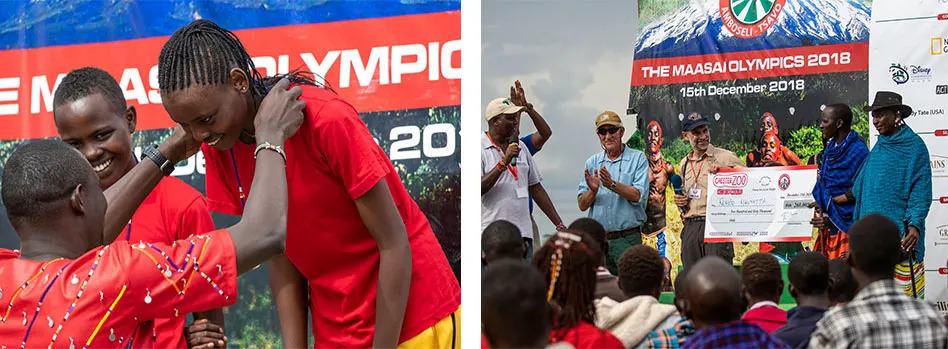
And so concludes the 4th bi-annual Maasai Olympics. Dozens of awards and medals have been handed out, including two for women’s events and another for best-dressed. Prizes worth thousands of dollars have been rewarded to the warriors for their support of conservation, and even more funds have been funnelled into the conservation efforts themselves.
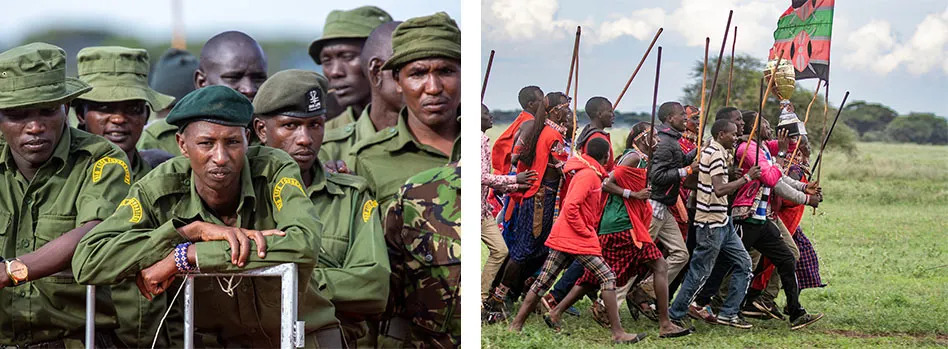
And when the venue has been broken down, and all the warriors have returned to their manyattas, and all that’s left behind from the event are footprints in the dust, the greatest winner of all emerges: lions, of which there are more today than there were yesterday. And so we hope the trend continues.
TAGGED WITH: Maasai Mara, Maasai Culture, Maasai Tradition, Maasai Beadwork, Maasai Olympics, Maasai Celebration



COMMENTS (1)
Francis Bagbey
July 9, 2019Great story. Glad to know about this.
REPLY